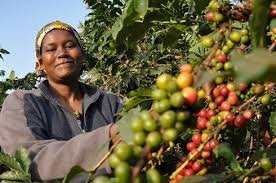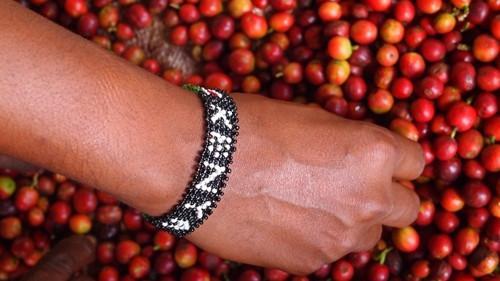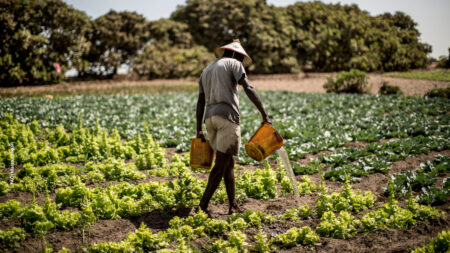In Kiambu, on the outskirts of Nairobi, it is not uncommon to find new residential estates coming up replacing coffee estates. Coffee was the mainstay of economies in the central Kenya region for decades, before more lucrative real estate prospects knocked door to provide homes for a burgeoning Nairobi population.
But this is more than quick returns for land owners. Coffee returns have been dwindling for the last three decades. Initially, the poor prices were blames on government policies to subdue a region that was clearly opposed to the government of the day. Then the global slump on coffee prices hit the region and farmers failed to see the need of keeping the bushes where returns were minimal. But also, there was local mismanagement of coffee farmers’ cooperatives and recently climate change and coffee theft that has brought the once important crop to its knees.

But this did not just happen to Kenya. Ethiopia, the birthplace of coffee has had centuries of handling the cherries and this has been integrated deep into their culture. A narrative is given of how a herder in Ethiopia’s highlands observed the behavior of his goats when they ate from a certain herb.
This began a love and cultural attachment to a crop that fetches around $800 million annually, representing 25 percent to 30 percent of the total export earnings of the country. Coffee is not just an income earner in Ethiopia. It is the life. It is common practice to see women in Ethiopian streets roasting and brewing their coffee to the delight of coffee enthusiasts.
There has been argument on who between Italians and Ethiopians borrowed the bitter coffee culture, but it is clear the two countries have deep love for the drink. No ceremony can happen in Ethiopia without a traditionally brewed coffee session. A coffee ceremony is often taken in no rush with communities exchanging narratives of how to best brew coffee.
Read also: Rwanda beats Brazil, Colombia as “Best of the Best” coffee producer
An Ethiopian ceremony without coffee is odd. It is like a Mexican cuisine without beans, or a Russian party without whisky, or an American table without any form of bread.

Kenya has lacked that attachment to coffee which largely explains the many difficulties facing the sector. Uganda for example is known for its Matoke, a banana variety that is consumed almost in every meal. Given the importance of the fruit to the food security of Uganda as well as the cultural significance it carries, the country has put many measures to ensure the value chain is well looked into. This is from scientific research on better performing varieties, crop husbandry, marketing and value addition. There is even banana wine in Uganda.
This type of management of coffee is absent in Kenya despite the crop being a major earner. Kenya’s coffee earnings hit Ksh. 15.9B in the 2017/18 season. Coffee is now ranked fourth foreign exchange earner slightly below tea, horticulture and diaspora remittance. Most of leading business people and government officials currently in office have coffee to thank for in financing their education.
It was estimated in 2012 that there were about 150,000 coffee farmers in Kenya and other estimates are that six million Kenyans were employed directly or indirectly in the coffee industry. The number has either stagnated or reduced.
The annual forecast by US Department of Agriculture (USDA) shows the Kenya’s total production for 2019/20 will hit 650,000 bags of 60 kilogrammes each compared to 750,000 bags this year, a 13.3 per cent drop. The total distribution is expected to decline to a historic low of 830,000 bags compared to 910,000 in 2018/19.
Coffee stocks, which in Kenya are held by millers, agents, and exporters will also slump to a record low of 105,000 bags, 40,000 bags lower compared to this year.

Coffee drinking culture in Kenya is nascent. Coffee shops did not pop up in Nairobi not until early 2000s. Kenyan homesteads wake up to a cup of tea or of late, glass of fruit juice. Coffee has been grown purely for export purposes. The only coffee that has trickled back is processed coffee commonly known as instant coffee with global brands like Nescafe.
With no cultural attachment to the crop, the keenness to manage the welfare of the crop has remained elusive especially with any dip in global prices. Equally, there being no passion on the crop, land owners have found it easy to clear off coffee bushes and replace it with concrete.
However, this might not last for a long time. Coffee shops are coming up prominently in the heart of Nairobi. Local coffee chains like Dormans, Java and ArtCaffe are pushing the Kenyan brand to a higher level.
Equally, Kenyan coffee which traditionally has been used by international coffee roasters for blending low quality coffee is now being exported directly to outlets like Starbucks competing with Brazilian and Ethiopian exporters to markets in America, Europe and Asia.











